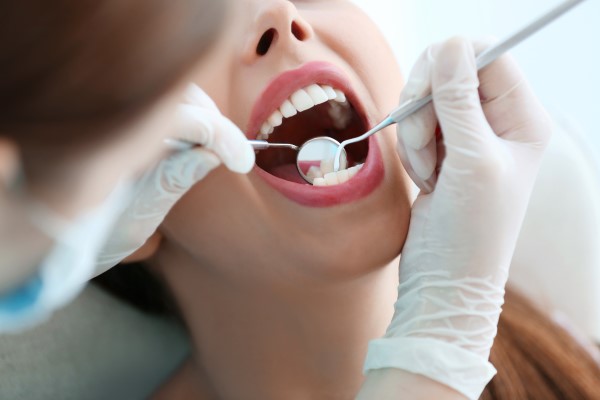How Exercising Can Lead to Dental Fillings

While exercising can be important for certain aspects of your health, it can actually have a negative influence on your dental health and lead to dental fillings. The more an athlete exercises, the higher the chance for poor dental hygiene. The lifestyle of exercise can have an impact on the enamel of the teeth and cause cavities, gum disease, dental fillings and possibly more treatments. There are solutions available to treat these effects of exercise, but first, it is important to know what those effects and causes are.
Diet
The diet of an athlete can affect the teeth with its high sugar sports drinks, protein shakes and high-carbohydrate foods. Diet has always been an important part of an athlete’s regime and is instrumental in maintaining good health. Yet the food and sugar content wears away at the teeth, causing infections, which lead to gum disease and the need for dental fillings. It is an issue that can be prevented by frequent oral hygiene and dentist visits.
Your saliva
Athletes are found to have low amounts of saliva, which has an impact on plaque formation. Their saliva levels are low and their mouths drier because of their heavy breathing during exercise. A dry mouth encourages plaque to form despite the fluids an athlete drinks. Without saliva, food particles and bacteria are not washed away and linger in the teeth, and the enamel isn’t as protected. Not only is less saliva produced, but the pH of the saliva changes as well. The saliva becomes more alkaline losing the properties that fight off bacteria. A good fluid intake as well as attempting to breathe nasally instead of open mouth breathing can contribute to preventing dry mouth.
Dental fillings
A dental filling is what the dentist may suggest when a cavity needs to be treated. A cavity is a space caused within the tooth by decay. It should be filled before the decay spreads and the tooth needs to be removed and replaced. It’s a relatively simple procedure that often involves the dentist using an anesthetic so no pain is felt at all. Silver or plastic is then inserted into the cavity where it hardens quickly. Afterward, there may be some tooth sensitivity when the anesthesia wears off, but the filling is clear to use. However, it is recommended that you steer clear of hard foods.
Your dental health
Exercise certainly has its benefits, and the negative effects on your oral health should certainly not be a deterrent. Seeing your dentist on frequent visits for exams and cleanings as well as maintaining your own good personal oral hygiene practices can prevent any of the negative effects that exercise may produce. So don’t let fear of bad oral health stop you from going to the gym.
Request an appointment here: https://www.palmbeachdentistry.com or call Palm Beach Dentistry at (561) 225-2057 for an appointment in our Delray Beach office.
Check out what others are saying about our services on Yelp: Read our Yelp reviews.
Recent Posts
Many people may believe that they do not have time for routine dental care, which consists of daily brushing and flossing as well as periodic cleaning by a dentist. Admittedly, these tasks do take some time but should be a priority even in a busy schedule. People who do not take time for brushing, flossing,…
Professional dental cleanings are integral for keeping your mouth healthy. They remove plaque and tartar (hardened plaque) that regular brushing and flossing cannot, leaving your teeth and gums refreshed. Maintaining healthy habits that keep your smile bright and strong is essential to make the most of a dental cleaning. Caring for your teeth properly after…
When patients go for routine dental care, they may or may not have X-rays taken of their mouths. Dentists use these important diagnostic tools to check all layers of the tooth. While a key part of routine care, X-ray imaging may not be taken every visit. Every patient is different, and the recommended frequency for…
Maintaining routine dental care is important for oral and overall health, but many patients have questions about what it consists of beyond daily brushing and flossing. The right answers can help patients of any age understand the importance of providing optimum care for their teeth and the possible issues if they fail to follow through.…


